
views
New Delhi: It has been close to 26 years, but even now Manu searches for cover as the sun starts getting more intense. He is unbearably itchy if he spends more than an hour under the sun.
It was in 1992 that while working at a shoe factory in Najafgarh that a tub of hot polish fell over him leaving him in pain for the rest of his life along with a tag of being unemployed. It was only after repeated humiliation at home, did Manu start begging.
The Delhi High Court on Wednesday decriminalised begging in the national capital, saying provisions penalising the act were unconstitutional and deserved to be struck down.
“How can begging be an offence when the state cannot provide food or jobs,” the bench had observed during the hearing on the legality of the Act which is in force in many states.
However, Manu, and the three others who beg along with him near Vivekananda Marg in Delhi, knows little about the verdict and its implication.
"I don’t know if there was a law against us. We hardly take less than a few metres on the roadside and don't force people to give us money. But yes whenever police ask us to leave the place, we do," said Manu huddling for cover at a local tea shop from the sweltering heat.
Though begging in large urban cities often takes place near temples, dargahs or mosques, beggars are also found under the flyovers and bridges. Their homes are covered with tattered plastic sheets and old clothes.
Just across the Safdarjung government hospital, Shanta, in her mid forties, hands out a rusted iron plate whenever she sees someone passing by.
Shanta, who hails from Hisar in Haryana, is suffering from hypochondroplasia, or a short limb disorder, since childhood. Soon after marrying a 50-year-old, she found herself dumped on a busy Delhi street.
She knows nothing about the Bombay Prevention of Begging Act and has no idea why was begging considered to be a criminal act when "unsolicited prostitution and rapes weren't acted upon”.
"I have been begging here for the last four years and everytime a high-fi wala (dignitary) is passing through the street, we are asked to leave the place. Although we have never been arrested for begging but everytime a child is kidnapped, we are held up," says Shanta.
Shanta, however, demands 'others' to be punished because of whom the beggars have been looked at with suspicion.
"There are girls who come here at night and stand here till some big car comes to pick them up. Often there are drunken quarrels that soon turn into violent scenes. But it is we who are asked to leave the next morning. Why? Just because we beg?" asked Shanta while trying to manage a plastic sheet on which she sits.
The Delhi High Court verdict which decriminalised begging in the state also mentioned that making begging a criminal offence also violated their "fundamental rights".
But do these beggars look at begging as a profession or a means to earn livelihood?
Qalam's blue bright umbrella can make him recognisable even from a distance. Wearing a white cap and donning an old pair of kurta pajyama he easily passes off as a regular commuter, but his sharp voice begging for food and alms makes him stand out.
Unlike others, Qalam does know about "humara kanoon" and recalls young boys being reprimanded by the police whenever they are found begging on the streets.
"So no one can ask me to leave from here? But what if the police still force us? No one listens to a beggar. I started begging after my children drove me out of my own home, but since then people have been nice to me but not to the younger ones," said Qalam pointing to a young girl cajoling a couple to give her some money for food.
"She won’t get a single paisa from that money. Her trade mother will take most of it. All that she will have is her life so that she is able to again beg tomorrow and have some food," said Qalam.
However, the Delhi High Court has also ruled that the Delhi government is free to bring in an alternative legislation to curb the menace of forced begging or begging rackets but what distinguishes the normal beggars from those involved in rackets is yet to be seen.
Kalkaji-Tughlakabad junction, one of the busiest traffic hubs of Delhi, is also a prime spot for beggars to knock on the dark shiny car glasses for money.
Lata, mother of three, started begging in the last last eight months as her employer sacked her for alleged theft.
The 37-year-old who hails from Muzaffarnagar had come to the capital seeking employment at the residence of a businessman in South Delhi. But after working there for over eight years, one morning she was blamed to have stolen a gold ring and soon found herself on the streets.
But it’s not that she didn’t try to go back home. Upon going back, she was asked to return and look for work since her already deprived family could not bear another addition.
"I have been raped thrice here itself. Once by a security guard, and twice by unknown men who decided to feast on me when they were done with drinks. There was no law then. For us, making begging safe is of no use. Ensure some respect, and work for us, it’s only then that there can be any law," said Lata, tightly clutching onto her three-year-old.












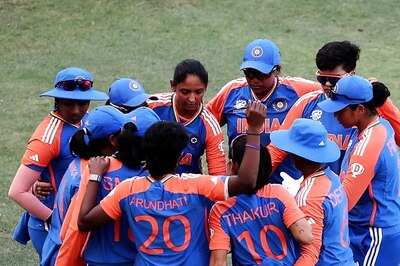

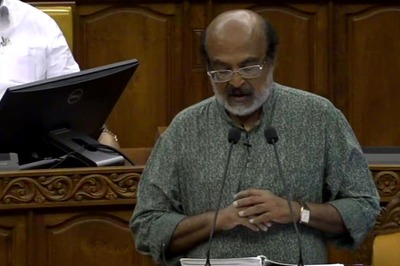
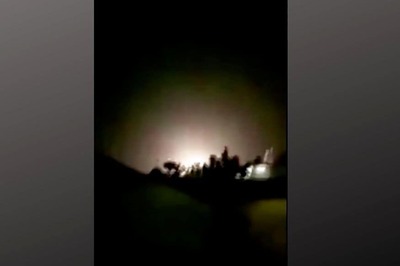


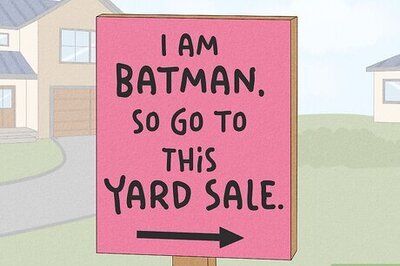
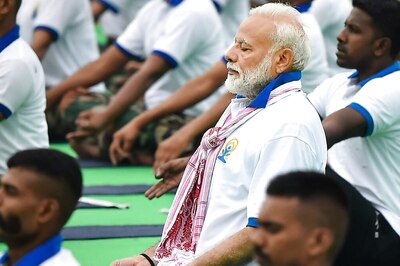
Comments
0 comment